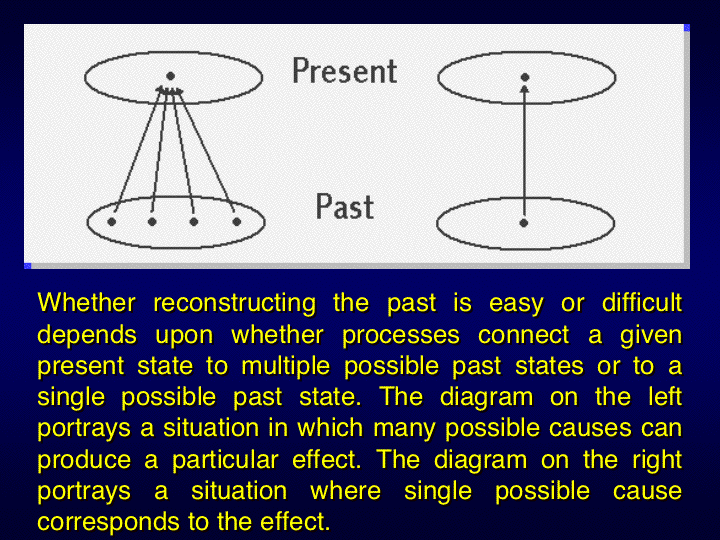III. The Nature of Science
(for further discussion see "Conceptual Bases of Experimental Design and Analysis, in Designing experiments and analyzing data: A model comparison perspective, by Prof. Delaney and S. E. Maxwell)
The term "science" is used today for activities that involve very different methodologies.
examples: theoretical physics
historical sciences
experimental sciences
Not all statements made in the name of science are equally reliable!
I. Defining science
Defining science, and demarcating science from non-science, is actually very difficult. For further discussion see "The Methodological Equivalence of Design and Descent", S. Meyer
Proposed demarcation criteria (from Meyer's article):
1. must explain by natural law(natural selection is not a law, historical sciences often explain by events not laws)
2. must not invoke unobservables(unobservables are often invoked in science - hypothetical common ancestors, primitive replicator, dark energy, wave-functions, multiple universes)
3. must make distinctive predictions(historical sciences are aften based on explanatory power, not predictive success)
4. must be falsifiable(failure to meet prediction can be blamed on auxilliary theories)
5. must describe repeatable phenomena
(historical events may not be repeatable - Ool, a fluctuation out of nothingness, a complex history of development which has been subtracted away)
6. must provide naturalistic mechanisms
"Demarcation arguments have collapsed. Philosophers of science don't hold them anymore. They may still enjoy acceptance in the popular world, but that's a different world."Martin Eger, quoted by J. Buell in "Broaden Science Curriculum", Dallas Morning News, March 10, 1989.Laudan speaks of the "demise of the demarcation problem" and states "If we could stand up on the side of reason, we ought to drop terms like 'pseudo-science' .... They do only emotive work for us."
L. Laudan, "The Demise of the Demarcation Problem," in But is it Science? ed M. Ruse 19888, pg 337-350.
Some proposals:
science is a methodology for understanding natural causation (narrow)
science is the study of the origin or operation of some aspect of the natural world (broad)
Key aspects:
1) forever tentative:the process never ends because:-can never do an infinite search
-can never claim to have infinite knowledge
2) usefulness of a theoryusefulness: explanatory and predictive powerrelative importance of each differs for historical and experimental sciencesthe more explanatory and predictive a theory is, the more closely it approaches the truth (a realist view?)
3) confidence in a theory increases or decreases, as opposed to being rigorously proved or disproved
II. Historical versus experimental sciences
for further discussion see:"Historical science, experimental science, and the scientific method", C. Cleland, Geology, 2001, 29, 987."The methodological character of historical science", Part 3 in "The methodological equivalence of design and descent", by S. Meyer view article
Gould and Mayr have noted the distinction between studying the operation of the natural world and investigating historical events:
"Hypothesis, predictions, experiments, and answers: the scientific method. But many sciences do not and can not work this way. As a paleontologist and evolutionary biologist, my trade is the reconstruction of history. History is unique and complex. It cannot be reproduced in a flask. Scientists who study history, particularly an ancient and unobservable history not recorded in human or geological chronicles, must use inferential rather than experimental methods."S. Gould, The Panda's Thumb, pg 28.
The repeated experiment is a cornerstone of scientific methods - although evolutionists, dealing with nature's uniqueness, do not often have an opportunity to practice it.S. Gould, The Panda's Thumb, pg 207."Evolutionary biology, in contrast with physics and chemistry, is a historical science - the evolutionist attempts to explain events and processes that have already taken place. Laws and experiments are inappropriate techniques for the explication of such events and processes. Instead one constructs an historical narrative, consisting of a tentative reconstruction of the particular scenario that led to the events one is trying to explain."E. Mayr, Sci. Amer., July 2000.
"The testing of historical narratives bridges science and the humanities"E. Mayr, Sci. Amer., July 2000.
Methodological features of the historical sciences (from Meyer's article):
1. asks historical questions2. makes abductive or retrodictive inferences
3. employs historical explanations/narratives
4. employs distinctive mode of testing (greater emphasis on explanatory power than on predictive success)
5. uses the method of 'inference to the best explanation.'
6. may be supported by causal process theories

III. Building confidence in a theory: inferential versus direct evidence and the importance of a plausible mechanism
Greatest confidence comes from:-direct observationsHowever, historical sciences often deal largely with inferential evidences. It is very tenuous to make strong conclusions from inferential or circumstantial evidence alone. At best, one can only say that such evidence is consistent with a particular theory or interpretation. Furthermore two critical questions about inferential evidence must be addressed:
-repeatable experiments
-validation of "risky" predictions
-establishing plausible mechanisms
